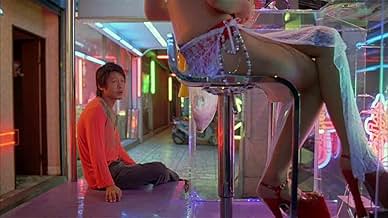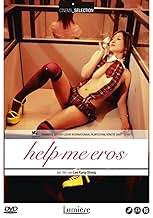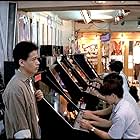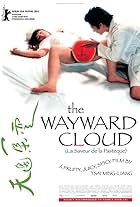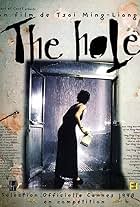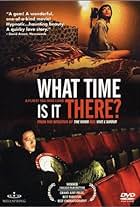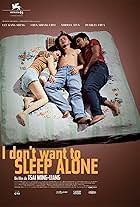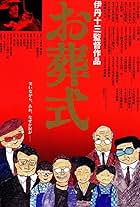Lee Kang-Sheng's measured somnambulism arrives as a sexual novelty sapped of eroticism, settles in like a lingering fever dream of aggressive imagery and departs as an affecting malaise, deepening with its pervasive languor. Writer-director Lee's second film under the apprenticeship of his mentor and producer, Tsai Ming-liang, is one of similar phases and concepts city isolation, sexual disengagement, spiritual disenchantment, deprivation and drollness. They are also decorated with similar technical approaches typified by a slow-burning static camera, recurring motifs and intense flourishes of non-verbal actions that shock, awe and delight.
But where Tsai's films revel in their metaphoric absences, Lee dwells on superficial excesses in "Help Me Eros". Through a methodical deconstruction of role-playing, desire, delusion and despair, Lee finds absurdity in its most raw and indecent. Taipei's neon-lit streets feel alive yet infected with rot, jangling with vociferousness and temptations with the city's glaring financial risks find salience in the hawking of promises rooted in sexual satisfactions and instant reverie. The mutual nihilism of the city and its decay is seen through an uprooted yuppie, Ah Jie (Lee), once a successful stock trader fell by a bad exchange and now living precariously by pawning his things while crossing and using his repossessed apartment and car.
Ah Jie lives the remainder of his previous life indulging in sexual fantasy and wanton marijuana use that he grows in his closet. Having fallen out of society, desperately in need of validation, calls a suicide hotline and becomes infatuated by the woman who talks to him. The woman, an overweight and depressed Chyi (Jane Liao), forms the film's sadder, parallel story of a deaden society's need to feel something anything to prove that it is still alive. This is where genuine humanity can be sensed behind the lens and through the film's pro forma gratuitously explicit scenes. Ah Jie pursues this joyless tract through acrobatic encounters with scantily clad, drug chasing betelnut salesgirls. The difference lies in the former's need for physical intimacy and the latter's pursuit of ritualistic depersonalisation.
With "Help Me Eros", Lee trades on Tsai's (serving as the set designer) art-house stock here for an appreciate core audience, but the film is bold and intriguing in its own right. The approach remains Tsai's but its glorious conflagration of striking aesthetics and insistent contemplations feel almost quaint and altogether poignant.

